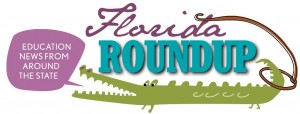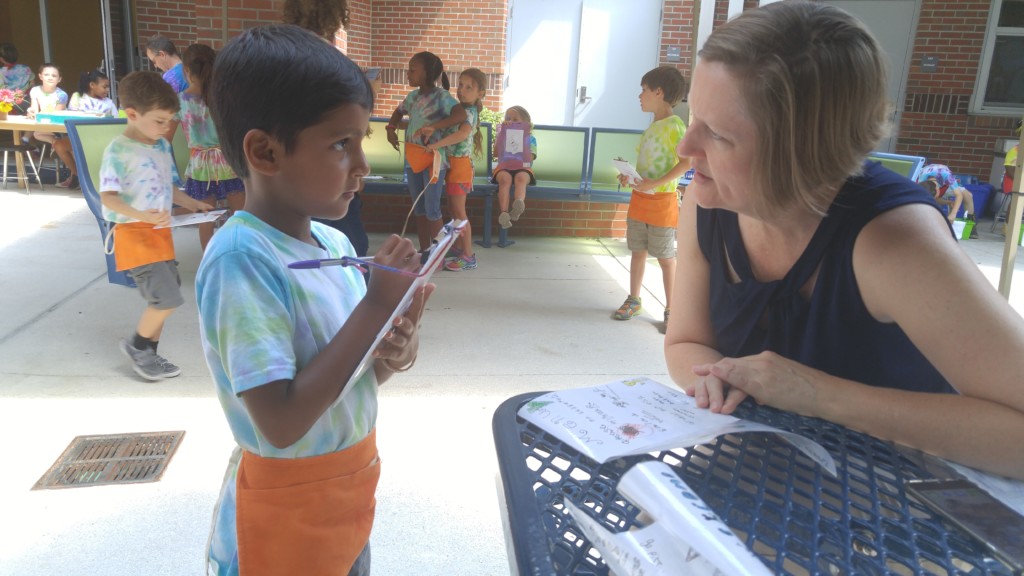 Student-funding bill: House PreK-12 Appropriations chairman Manny Diaz, R-Miami, files a bill that details the specific amounts the Legislature would allocate for per-student funding and other education initiatives. H.B. 3A would boost the base student allocation by $43.24 over the amount legislators initially approved, and slightly cut the required local tax effort for districts. Most of the other amounts for projects align with Gov. Rick Scott's proposals. Gradebook. Several school superintendents continue to call Gov. Scott privately to lobby for a veto of H.B. 7069. Politico Florida. Volusia County school officials say the extra money for education Gov. Scott is proposing will help, but still isn't enough to meet the district's needs. Daytona Beach News-Journal. An education analyst discusses the pluses and minuses of the charter schools funding provisions in the education bill. WUSF.
Student-funding bill: House PreK-12 Appropriations chairman Manny Diaz, R-Miami, files a bill that details the specific amounts the Legislature would allocate for per-student funding and other education initiatives. H.B. 3A would boost the base student allocation by $43.24 over the amount legislators initially approved, and slightly cut the required local tax effort for districts. Most of the other amounts for projects align with Gov. Rick Scott's proposals. Gradebook. Several school superintendents continue to call Gov. Scott privately to lobby for a veto of H.B. 7069. Politico Florida. Volusia County school officials say the extra money for education Gov. Scott is proposing will help, but still isn't enough to meet the district's needs. Daytona Beach News-Journal. An education analyst discusses the pluses and minuses of the charter schools funding provisions in the education bill. WUSF.
School schedules: Lake County School Superintendent Diane Kornegay proposes an extension of the school day by an hour, and the school year to 11 months. She's also asking for a boost in college-readiness efforts and for more opportunities for associate degrees and industry certifications. Kornegay is urging school board members to shift funding from existing resources to pay for the changes. “Everyone wants to hold onto everything,” said Kornegay, who began her job in January. “And we can do anything we want — but we cannot do everything we want.” Orlando Sentinel. The Brevard County School District is sticking to its spring break schedule for 2018, from April 2-6, despite complaints from parents and students. Forty-four percent of those who took an online survey voted for that week because they think it will have a "lesser impact on testing" and allow "more instructional time in classroom prior to testing window." Florida Today. (more…)

Vade Kafie, a student at P.K. Yonge, takes Julie Henderson's order at Pizza by the Creek, a six-week project based on personalized learning
GAINESVILLE, Fla. - Italian music played in the background as kindergarten and first-grade students welcomed parents and guests to Pizza by the Creek — a student-managed restaurant at P.K. Yonge Developmental Research School.
Several donned waiter outfits, preparing to serve pizza to parents and guests. Others carried boxes with materials to clean tables. One student served as a hostess, holding napkins neatly folded with plastic silverware. A few other students managed the cash register, giving actual change back to customers as they left.
Instead of assigning students specific tasks in the restaurant, their teachers hosted a job fair. Students applied for their positions with the restaurant, part of a six-week project-based learning unit that incorporates principles of personalized learning.
The definition of personalized learning is hotly contested and constantly changing. It generally refers to the idea that education should be tailored to every student’s needs, interests and strengths.
Students can participate in fun activities such as Pizza by the Creek, while at the same time, teachers can ensure those activities help them reach specific learning goals, like the Florida State Standards.
One aspect of personalization is competency-based learning, which allows students to advance to a higher level of learning regardless of the time they spend on a subject once they show mastery. Educators at P.K. Yonge said Pizza by the Creek is just one example of how they’re honing techniques that can help raise student achievement and better prepare students for the real world.
The school's mission requires educators to experiment with cutting-edge techniques, while also making sure they serve their students well.
“We see a much bigger picture of what is personalized learning and how you can design an environment to support that,” said Lynda Hayes, director of P.K. Yonge. “We are working in a high-stakes environment, demanding a lot of change and at the same time trying to mitigate any risk, and it is quite a juggling act.”
The K-12 school is high achieving, having received an ‘A’ in 2016.
The Florida Department of Education reported 68 percent of students at least passed or received a higher mark on the English Language Arts and math exams. The same nearly held true for the school's science scores, with 65 percent of students achieving such results.
Although P.K. Yonge is not a charter school, it admits students by a lottery. As a lab school, it’s required to enroll a student population that roughly reflects the statewide student population.
According to the school, 50 percent of its students are below Florida’s median income; 52 percent are children of color and 12 percent include students with disabilities. Students commute from more than 30 surrounding small and rural North Florida cities and towns. (more…)